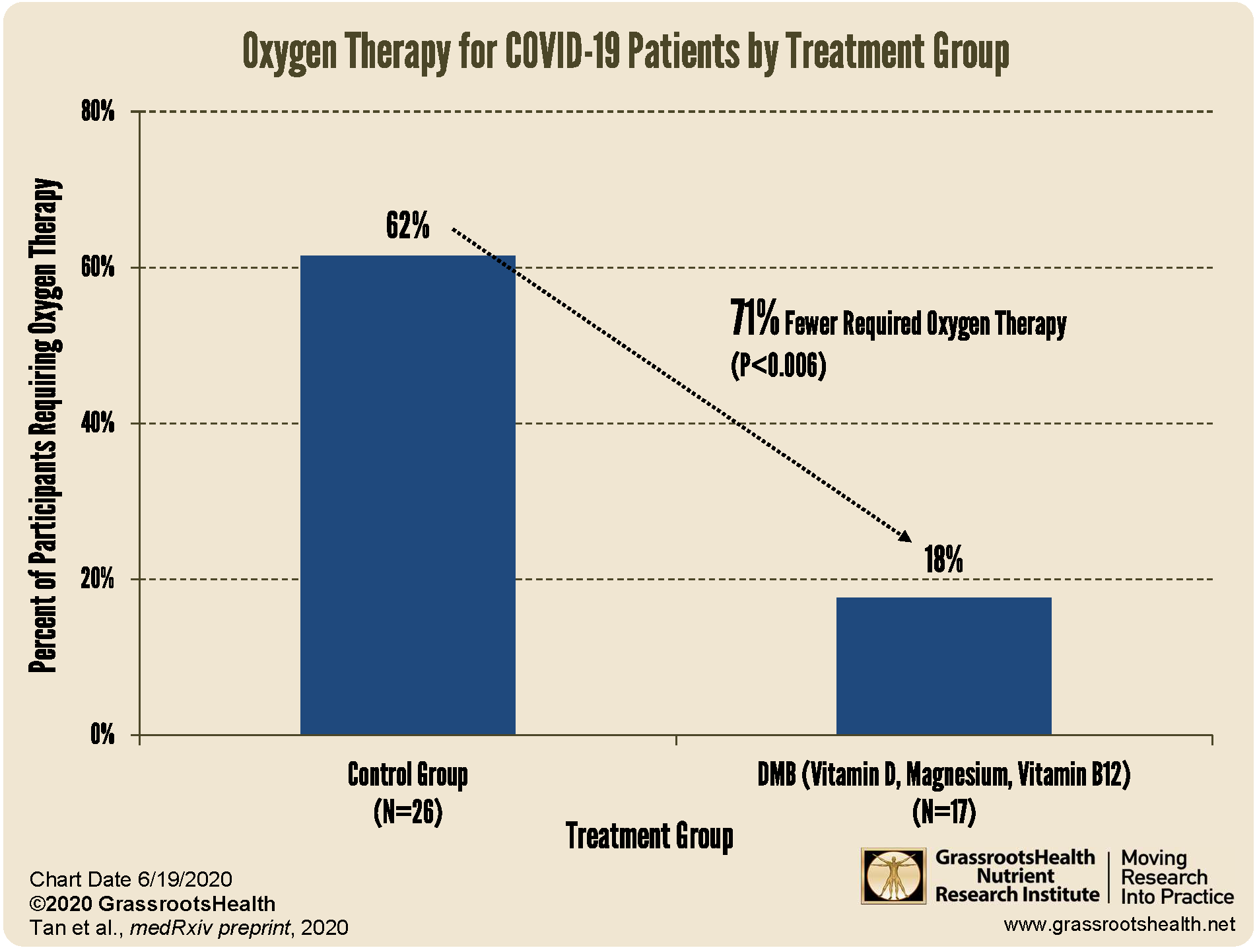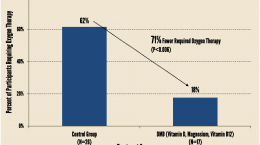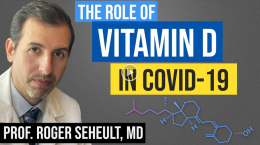Published on January 7, 2022
Video Friday: Watch this quick review, “Vitamin D, Magnesium, and Vitamin B12 – A Cohort Study from Singapore”
Key Points
- Vitamin D, along with other important co-nutrients (such as magnesium, vitamin B12, and many others), is essential for having an effective immune response against a pathogenic attack
- One study showed that supplementation with vitamin D, magnesium, and vitamin B12 improved outcomes for hospitalized COVID-19 patients
- Overall, 71% fewer patients required subsequent oxygen therapy or intensive care support when supplemented with the nutrient combination than those who were not supplemented
Amidst the ongoing COVID-19 pandemic, vitamin D deficiency itself is a major health concern that must be addressed in order to boost immune responses and improve COVID-19 outcomes among all populations. Much data has already been published showing a protective effect of vitamin D against severe COVID-19 outcomes and death. One such study reviewed in the video below shows how COVID-19 patients in a hospital in Singapore responded to supplementation with vitamin D, along with important co-nutrients magnesium and vitamin B12.
The video by Drbeen Medical Lectures provides a quick review of a study from Singapore by Tan et al., which found significantly reduced severe disease among patients admitted to a hospital with COVID-19 when provided supplementation of Vitamin D, Magnesium, and Vitamin B12 (DMB).
Watch the Video!
After watching the video, be sure to make note of the details below.
Vitamin D, Magnesium, and Vitamin B12 for COVID-19: Video Summary
- The researchers hypothesized that patients given the nutrient combination would be less likely to require oxygen therapy, intensive care support, or both, compared to those who did not receive the nutrient combination
- Out of 43 consecutive COVID-19 patients who were 50 years or older and did not require oxygen therapy upon admission, 17 received the vitamin D, magnesium, and vitamin B12 (DMB) combination, while 26 patients did not
- Those receiving the DMB combination were given oral vitamin D (1000 IU/day), Magnesium (150 mg/day), and Vitamin B12 (500 mcg/day)
- All patients enrolled were followed for 30 days or until hospital discharge to track any deterioration leading to oxygen therapy or the need for intensive care support
The Supplement Combination had a Significant Effect
- 71% fewer patients required subsequent oxygen therapy or intensive care support in the DMB group than the non-DMB group, and the difference was significant
- 3 out of the 17 patients (18%) in the DMB group required subsequent oxygen therapy or intensive care support, two of which required the therapy within 24 hours after their first supplement dose (meaning the supplements may not have had time to make a difference)
- 16 of the 26 (62%) patients not receiving the DMB supplementation required subsequent oxygen therapy or intensive care support
- Odds Ratio (OR) is a measurement that shows the strength of association between an intervention and an outcome; for this study, the outcome was the need for oxygen therapy or intensive care support, with the univariate analysis including whether or not the patient received the DMB combination, and multivariate analysis including adjustments for other influencing variables (including age and hypertension status)
- Univariate analysis led to an OR of 0.13 for needing either or both oxygen therapy or intensive care support; this means receiving the DMB combination led to an 87% reduced risk of experiencing that outcome. The multivariate analysis led to an OR of 0.20, or an 80% reduced risk.
Are You Getting Enough Vitamin D, Magnesium, and Other Immune Boosting Nutrients?
 Having and maintaining healthy vitamin D levels and other nutrient levels can help improve your health now and for your future. Choose which to measure, such as your vitamin D, omega-3s, and essential minerals including magnesium and zinc, by creating your custom home test kit today. Take steps to improve the status of each of these measurements to benefit your overall health. You can also track your own intakes, symptoms and results to see what works best for YOU.
Having and maintaining healthy vitamin D levels and other nutrient levels can help improve your health now and for your future. Choose which to measure, such as your vitamin D, omega-3s, and essential minerals including magnesium and zinc, by creating your custom home test kit today. Take steps to improve the status of each of these measurements to benefit your overall health. You can also track your own intakes, symptoms and results to see what works best for YOU.
Enroll and test your levels today, learn what steps to take to improve your status of vitamin D (see below) and other nutrients and blood markers, and take action! By enrolling in the GrassrootsHealth projects, you are not only contributing valuable information to everyone, you are also gaining knowledge about how you could improve your own health through measuring and tracking your nutrient status, and educating yourself on how to improve it.






